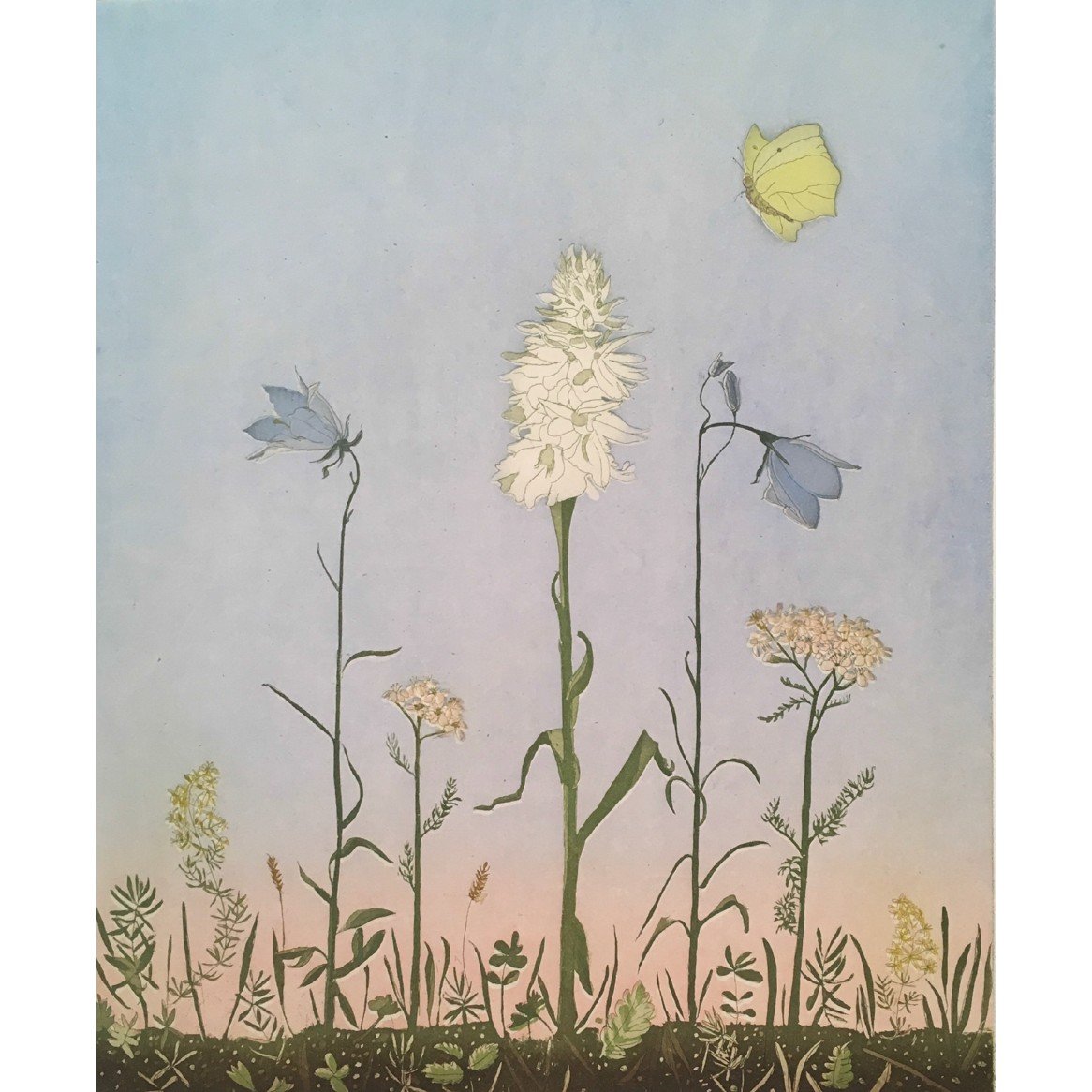 Image 1 of
Image 1 of


Marie-Louise Martin
£0.00
Possibly, as a result of the pandemic, Martin's awareness of her surroundings and immediate environment, has altered her experiences of her many walks. She has been particularly fascinated when the woods reveal something of their secrets. Overgrown tracks seem, sometimes, to lead to abandoned places: homesteads; gardens; ruined barns; steps that apparently to go nowhere; and even ordinary things, such as chairs. Their abandonment asks many questions: why did people just up and go: why were they leaving everyday objects behind like farm machinery, even personal belongings – photographs and letters. Where are those people now; do they know what they have left behind? Their reasons for leaving are long forgotten. Sometimes, the destination or purpose of these paths has vanished – and vanished completely out of time. Now, she invites the viewer to join with her in imagining their histories. It is in these human traces, both ancient and recent, that her interest lies; that, and that those histories will, eventually, be reclaimed by nature: disappearing forever. For her, it is both gladdening and saddening in equal measure. Different seasons and changing weather also alter those experiences; they are both tempered and sharpened: the emotional response is not the same.
Add To Cart
Possibly, as a result of the pandemic, Martin's awareness of her surroundings and immediate environment, has altered her experiences of her many walks. She has been particularly fascinated when the woods reveal something of their secrets. Overgrown tracks seem, sometimes, to lead to abandoned places: homesteads; gardens; ruined barns; steps that apparently to go nowhere; and even ordinary things, such as chairs. Their abandonment asks many questions: why did people just up and go: why were they leaving everyday objects behind like farm machinery, even personal belongings – photographs and letters. Where are those people now; do they know what they have left behind? Their reasons for leaving are long forgotten. Sometimes, the destination or purpose of these paths has vanished – and vanished completely out of time. Now, she invites the viewer to join with her in imagining their histories. It is in these human traces, both ancient and recent, that her interest lies; that, and that those histories will, eventually, be reclaimed by nature: disappearing forever. For her, it is both gladdening and saddening in equal measure. Different seasons and changing weather also alter those experiences; they are both tempered and sharpened: the emotional response is not the same.
Possibly, as a result of the pandemic, Martin's awareness of her surroundings and immediate environment, has altered her experiences of her many walks. She has been particularly fascinated when the woods reveal something of their secrets. Overgrown tracks seem, sometimes, to lead to abandoned places: homesteads; gardens; ruined barns; steps that apparently to go nowhere; and even ordinary things, such as chairs. Their abandonment asks many questions: why did people just up and go: why were they leaving everyday objects behind like farm machinery, even personal belongings – photographs and letters. Where are those people now; do they know what they have left behind? Their reasons for leaving are long forgotten. Sometimes, the destination or purpose of these paths has vanished – and vanished completely out of time. Now, she invites the viewer to join with her in imagining their histories. It is in these human traces, both ancient and recent, that her interest lies; that, and that those histories will, eventually, be reclaimed by nature: disappearing forever. For her, it is both gladdening and saddening in equal measure. Different seasons and changing weather also alter those experiences; they are both tempered and sharpened: the emotional response is not the same.





